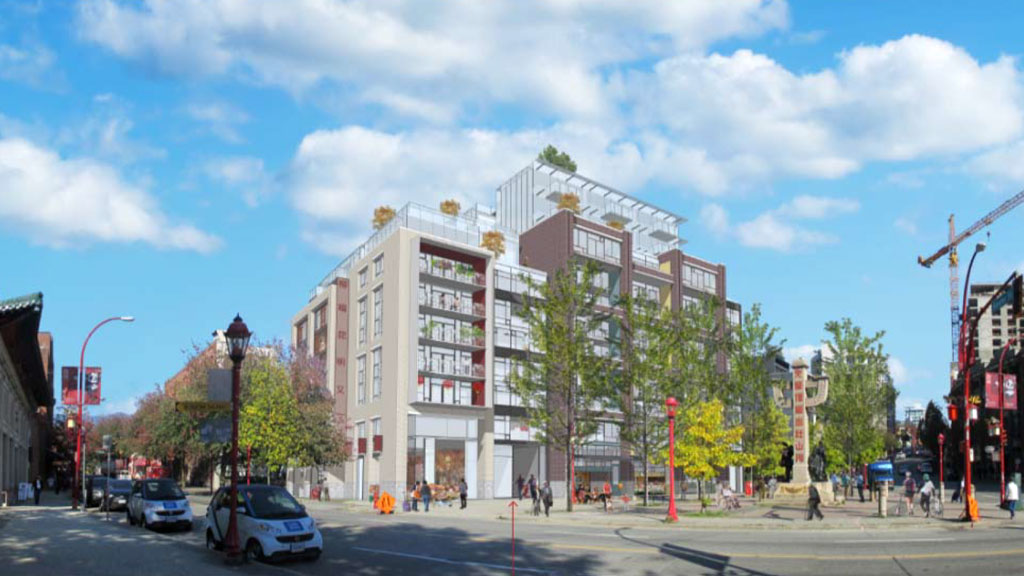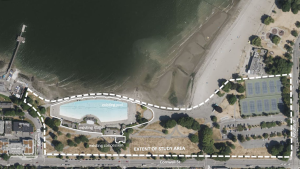The Supreme Court of British Columbia has given a possible new lease on life to a rejected Chinatown development in Vancouver.
On Dec. 9, 2022, Justice Jan Brongers ordered the City of Vancouver to reconsider a rejected application by Beedie Holdings Ltd. to build a nine-storey mixed-use building at 105 Keefer St.
Beedie presented seven different arguments against the city’s rejection of the proposal. Brongers dismissed all the arguments except one.
“The board’s decision is substantively unreasonable because the reasons provided by the board are inadequate,” Brongers writes in his judgment.
Beedie requested the court order the city to approve the application but Brongers only ordered a reconsideration, “as soon as is reasonably practicable.”
Beedie’s application sought to build a nine-storey mixed-use building with retail stores at street level and more than 100 residences in the upper floors. The development was to include a seniors’ cultural space and three levels of underground parking.
The 2017 proposal was met with public backlash, as noted in the judgment.
During a public engagement session, concerns were raised with the “proposed architectural design” including “whether the external design elements fit within the character of adjacent neighbourhood buildings,” reads the judgment.
“There was also an incident at the meeting involving some opponents of the project who vandalized a scale model of Beedie’s proposed structure.”
The application was rejected by the city’s Chinatown Historic Area Planning Committee, an advisory committee.
However, the development permit application was approved by the Development Permit Staff Committee, a group of senior city staff. They recommended the development permit board approve the permit with certain conditions.
But the permit was rejected with two voting against and one voting in favour.
“Because this is such an important site of such design significance to Chinatown and because I feel that the application has not met the design test in my view, I’m going to support the motion to refuse the application,” said board member Gil Kelley during the public review.
In a formal letter sent to Beedie, the city cited non-compliance with zoning bylaws, development bylaws, site guidelines and neighbouring objections as their reasons for refusal.
The petition Brongers passed judgment on was filed by Beedie in 2019.
Central to Brongers’ decision making was a departure by the board from a particular past practice. Brongers noted the rejection marked the first time an application was outright refused in recent memory and that the board’s modus operandi is to approve projects with conditions in order to make them suitable for a given area.
“The board was obligated to explain why this longstanding past practice was departed from in the case of Beedie’s DP application,” writes Brongers.
During the petition hearing in June, the city denied any departure from past practice, regardless of agreeing there was no demonstrable example of the board refusing any other development permit applications in the past.
But the city’s argument was not good enough for Brongers.
“I have searched in vain for such a justificatory explanation” as to why the city did not explain its reasons for departing from the longstanding practice, writes Brongers
“In the absence of such an explanation, I find that the board’s decision was unreasonable.”
The City of Vancouver and representatives of Beedie were not available for comment prior to publication.











Recent Comments